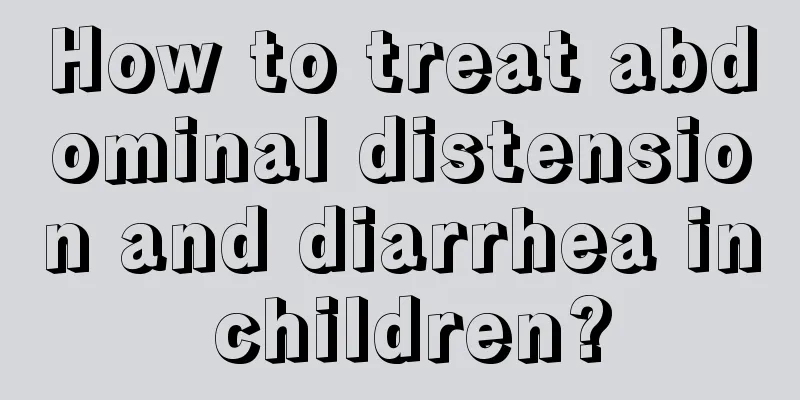What causes baby's skin to turn yellow?

|
There are many reasons for the baby's skin to turn yellow. What's the matter with the baby's skin turning yellow? However, if the skin of a newborn is yellow, then most of the reasons are caused by jaundice. Therefore, in many maternity and baby stores, as long as the expectant parents are preparing things for having a baby, they will recommend parents to purchase a bottle of glucose to prevent the baby's skin from turning yellow, and it will also play a preventive role. Many people have heard that the skin of newborns will turn yellow a few days after birth. What should we do if we encounter this situation? The elderly at home may say, "This is fetal jaundice, it's okay." Is it really okay for a newborn's skin to turn yellow? The answer is no. Due to immature liver development and increased destruction of red blood cells in the blood, about 50% of full-term babies and 80% of premature babies develop yellow skin 2-3 days after birth, which is medically known as neonatal jaundice. Neonatal jaundice can be divided into physiological and pathological types. Physiological jaundice is determined by the physiological characteristics of bilirubin metabolism in newborns. It is often manifested as yellowing of the skin 2-3 days after birth, with the jaundice being most severe at 4-7 days. The total bilirubin in full-term infants should be <12 mg/dl, and the total bilirubin in premature infants should be <15 mg/dl. Thereafter, the jaundice gradually subsides, and the jaundice in full-term infants disappears in 10-14 days, and in premature infants disappears in 3-4 weeks. During the jaundice period, the patient is in good spirits and eats well, and everything is normal except for yellowing of the skin. Those who meet the above conditions are diagnosed with physiological jaundice. In some newborns, jaundice occurs prematurely, within 24 hours after birth. If accompanied by anemia and reticulocytosis, neonatal hemolysis caused by maternal-fetal blood type incompatibility should be considered. If the newborn is born with asphyxia, pneumonia, sepsis, delayed meconium excretion, etc., jaundice is often severe, exceeding the above physiological range, and persists or reappears. Some newborns do not have severe jaundice at birth, and the jaundice worsens in 2-3 weeks. If accompanied by hepatomegaly and increased transaminase, hepatitis should be considered. Some neonatal jaundice is caused by the presence of enzymes in breast milk that inhibit bilirubin metabolism, which is called breast milk jaundice. The above jaundice does not meet the conditions of physiological jaundice and is often caused by various pathogenic factors, so it is all pathological jaundice. But for young parents, it is difficult to judge whether the child's jaundice is physiological or pathological. Therefore, when a child develops jaundice, it is best to take the child to the hospital and let the doctor conduct a comprehensive examination of the child to make a clear diagnosis. So what harm does jaundice do to newborns? When the jaundice is not too severe, it has little effect on newborns. When the jaundice is severe, especially within one week after birth, indirect bilirubin in bilirubin can enter the brain through the blood-brain barrier and deposit in the cranial nerve nuclei, causing bilirubin encephalopathy. The child becomes drowsy, refuses to eat, has poor response, and in severe cases, the head tilts back, frequent convulsions occur, and even death occurs. Those who survive by chance often have sequelae, such as athetosis, oculomotor disorders, enamel hypoplasia, intellectual disability, etc. Therefore, when newborns develop jaundice, do not take it lightly and actively diagnose and treat it. Parents of newborns, after understanding why their baby's skin turns yellow, have some simple knowledge, but they are still at a loss as to how to deal with and treat the baby's skin after it turns yellow. But the only thing that is certain is that once the baby's skin turns yellow, you must not let it develop, because if you do so, it will also harm the baby's health. If it leaves any sequelae, the parents will regret it. |
<<: What should I do if my baby coughs and sounds hoarse?
>>: Why is my baby's skin a little yellow?
Recommend
What causes red bumps in babies?
A baby's skin is very tender and sensitive, s...
Treatment and causes of gastroenteritis in children
Children may develop gastroenteritis if they eat ...
What foods are good for a seven-month-old baby with moderate anemia?
Food occupies a very important position in life, ...
What's wrong with the child who can't sit still?
Many children have a characteristic, which is the...
What should I do if my baby keeps having a runny nose?
Nowadays, most families have only one child. When...
Children with delayed neurodevelopment
Nerves are very important components of our body,...
Is it normal for a seven-month-old baby to have a temperature of 373?
If a seven-month-old baby has a body temperature ...
Do boys develop breasts during puberty?
Everyone knows that when girls enter puberty, the...
Sores on the child's buttocks
The most common condition for children's butt...
Does hernia in children require surgery? There are ways to deal with it at home
There are two common types of hernia in children:...
What to eat to cure bronchitis cough in children
Among many pediatric diseases nowadays, pediatric...
What is the disease of children's swollen gums?
Swollen and painful gums are relatively common de...
Treatment of baby's wind-heat cold
Baby wind-heat cold is very common in our daily l...
How to treat congenital heart disease in children
Congenital heart disease is a malformation of the...
What are the methods to treat children's cough?
What are the methods to treat cough in children? ...









